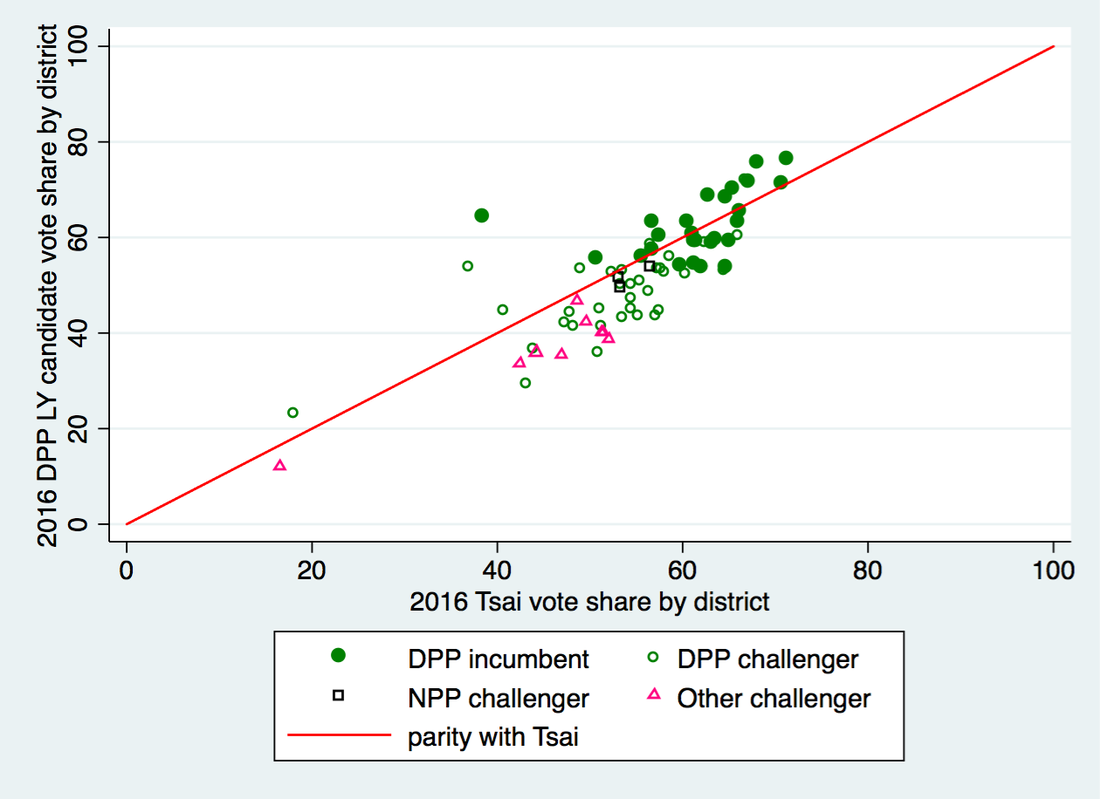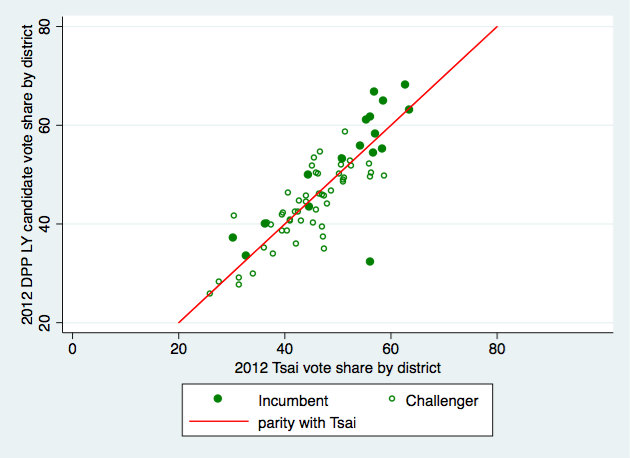One of the more interesting developments in Taiwan's 2016 general election was the rise of so-called "Third Force" parties--completely new entrants into the political system, rather than break-aways from the KMT or the DPP. While some of the media commentary got a bit carried away about the significance of these new parties, the founding of one, the New Power Party (NPP), did pose a serious threat to the DPP's chances of winning a majority in the legislature. As an offshoot of the Sunflower Movement, the NPP positioned its message in a way calculated to appeal to pan-green voters, and it recruited high-profile candidates to run in district races, not just the party list. These district candidates had the potential to split the pan-green vote in what everyone expected would be a very anti-KMT year, and in a worst-case scenario for their side, help the KMT hold on to their legislative majority.
In the end, a pan-green split didn't happen. A key reason is that the DPP headed off the threat early: the party formed a kind of pre-electoral coalition by yielding 11 districts to the NPP and other non-DPP candidates in exchange for their support not to run against DPP candidates elsewhere. And the districts that the DPP yielded were, with one exception, far past the critical 57th seat needed to deliver a legislative majority. It turned out to be a good deal for the DPP, which won 68 seats overall. It also, more surprisingly, turned out well for the NPP, which won all three district seats and five overall and became the third largest party in the LY.
My own expectation going into the election was that the NPP candidates would perform worse, on average, than a generic DPP challenger. (In fact, if you read that linked post closely, I was even more specific: 2-4 points worse, on average.) The rationale was pretty simple: Freddy Lim, Hung Tzu-yung, and Huang Kuo-chang were already household names, but their close association with the Sunflower Movement, and the acerbic rhetoric of Huang, especially, suggested they would be fairly polarizing as candidates. And in the traditionally blue-leaning districts of Taipei 5 (Lim) and New Taipei 12 (Huang), I thought they would turn off more voters than they attracted with that approach.
So what actually happened? In the graph above, I've plotted the vote share of each DPP and DPP-endorsed district candidate against Tsai Ing-wen's share of the presidential vote in the same district. DPP incumbents are represented by solid dots; challengers (i.e. non-incumbents) by hollow ones; NPP candidates by hollow squares, and other non-DPP candidates by hollow triangles. (A hearty thank you to Frozen Garlic for doing the yeoman's work of sorting the presidential race vote totals by LY district and making these data publicly available.)
Thoughts on this below the break.


 RSS Feed
RSS Feed
